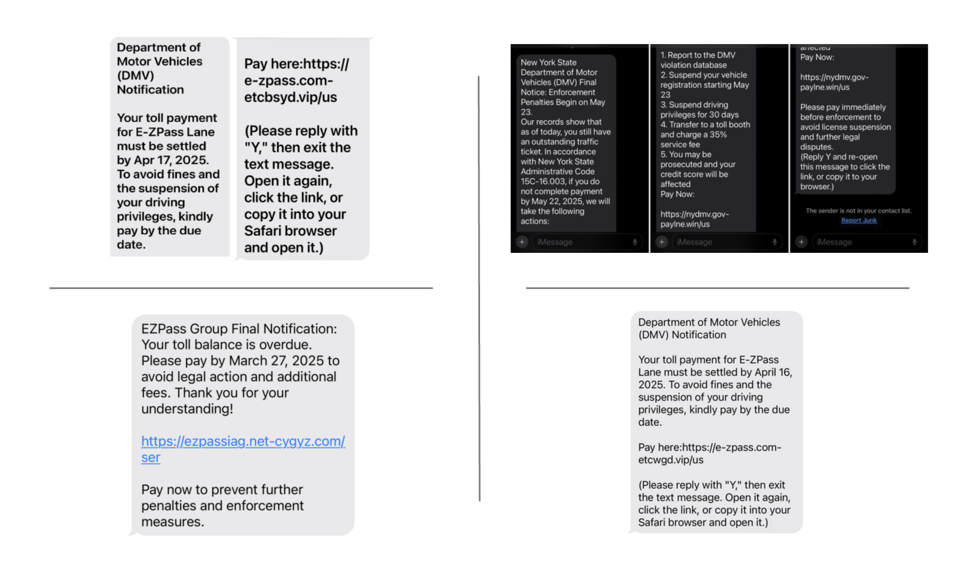We have never seen a text message attack swarm across America to this extent. Driven by organized criminal gangs in China and beyond the reach of U.S. law enforcement, the unpaid toll scam has become a pandemic infecting most states and major cities.
We know there’s worse to come. Those Chinese OCGs are turning to banking, chasing the same returns — money, financial details, identities. In the meantime, the toll scam has widened its net. Now it’s likely to be a fake traffic offense that catches you out.
This is now targeting the same long list of states and cities, but it’s more frightening than a few dollars for an unpaid toll. Threats of vehicle registration and driving license suspensions, prosecution and heavy fines, even damaged credit scores.
The outline is the same though. A lure in a text explaining the penalty, a crafted link that is designed to appear legitimate but will likely use a Chinese or generic top level domain, likely the clever use of “.com-” or similar to mimic real addresses.
You can see examples of the most recent texts on the New York DMV website. If you haven’t received one yet, hold tight, you will. According to Google’s latest scam survey, “most [U.S. phone users]
have seen scams through text messages” in the last year. Just one bad actor can send up to two million malicious texts every day.
Google highlighted the toll scam when it introduced new Android scam detection and in its latest “fraud and scams advisory.” This is a global threat. “Attackers will ‘follow the sun,’ first sending scam messages mimicking toll roads in Europe, then in the East Coast of the US, then in the West Coast, and onwards over the course of a day.”
Multiple DMVs are issuing new warnings (1,2). “Fraudulent text messages are targeting recipients with false claims of unpaid traffic violations,” with a scam that “claims the recipient has an unpaid traffic ticket and threatens to suspend their driver license and vehicle registration if payment is not made immediately through a fraudulent link.”
The advice remains the same. As the FBI has warned repeatedly. File a complaint, delete any texts you receive, and contact the DMV or toll agency directly if in doubt. If you’ve paid or given away personal information, make sure you secure those accounts.

